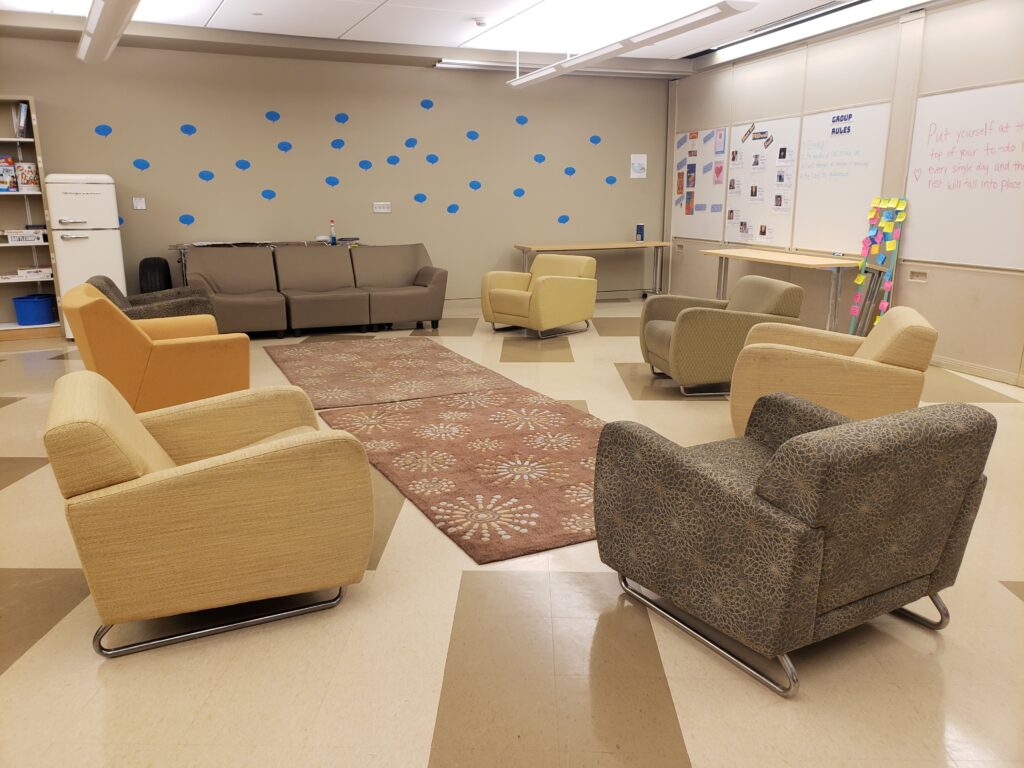CHLOE KOWALYK
Asst. News Editor
The past few semesters have not been easy for the majority of college students.
The combined stress of COVID-19, the fights against racial violence and the immediate switch to online learning and isolation have had detrimental effects on the mental health of college students.
According to a recent survey I conducted on 94 college students to examine student mental health during the pandemic, 92 percent of students rated their stress levels as high.
Ninety one percent of these students rated their anxiety as high, and 86 percent of students said their stress and anxiety levels are higher this semester compared to semesters not affected by COVID-19.
SUNY Fredonia students are no exception to this sharp decline in mental health.
This semester, Fredonia made the decision to have class for 14 weeks straight with no breaks.
The decision was made to avoid students going home or traveling in hopes of avoiding spreading the virus.
Unintentionally or not, SUNY Fredonia has taken part in the nationwide blaming of college students for the increase of positive cases.
Rather than acknowledging that the rising case numbers may be due to an increase in positive cases in the community or simply as a result of the failure of the campus health plan, many colleges blame college students for partying, thus spreading the virus.
Akshay Syal, a reporter for NBC, suggests that colleges should employ “harm-reduction approaches instead of imposing abstinence-only-type policies, teaching students how to safely socialize with friends.”
Many Fredonia students, who feel they are being blamed, hope to see these approaches next semester.
With the constant classes with no breaks, many students feel overwhelmed.
Ninety two percent of students responded to my survey saying they feel unmotivated and burnt out.
One SUNY Fredonia student, Hunter Halterman, said he is feeling exhausted and wishes the university would “not smoosh an entire semester into a shorter time with the same amount of work and no breaks.”
After a student-created petition circulated the campus advocating for a break from classes, Fredonia reluctantly selected two dates — April 13 and April 21 — which they called “mental health days” where no classes were held.
In a statement regarding the two added mental health days, President Kolison said, “Students, I encourage you to use these days to de-stress, and take a breath.”
However, SUNY Fredonia students hardly got a break.
One student lamented, “We have twice the amount of work than ever and even less days off, it’s not fair to anyone.”
Another student said that they wished SUNY Fredonia would give students “an actual break, not two random mental health days.”
Many students ended up using these days as a way to catch up on work, rather than focusing on relaxing and improving their mental health.
The mental health days were held on a Tuesday and a Wednesday, respectively.
The choice of dates once again contributes to student-blaming.
Choosing days toward the middle of the week would prevent students from going home on a long weekend.
However, SUNY Fredonia has instituted another means of improving the mental health of their students.

Each Monday, Enrollment and Student Services sends out an email on behalf of Student Wellness and Support.
The emails have the subject line “FSUFREDWELL” and include information about how students can manage any stress or anxiety they are feeling.
The FREDwell program also offers several destressing events, including coloring, rock painting and KanJam. There is also a FREDwell lounge in the Williams Center where students can attend peer-led groups to manage mental health, stress and coping techniques.
Unfortunately, according to a poll conducted on The Leader’s Instagram page, a vast majority of students don’t utilize the FREDwell lounge.
Fredonia’s student body hopes for more emotional support services and the recognition of the importance of student mental health next semester.
